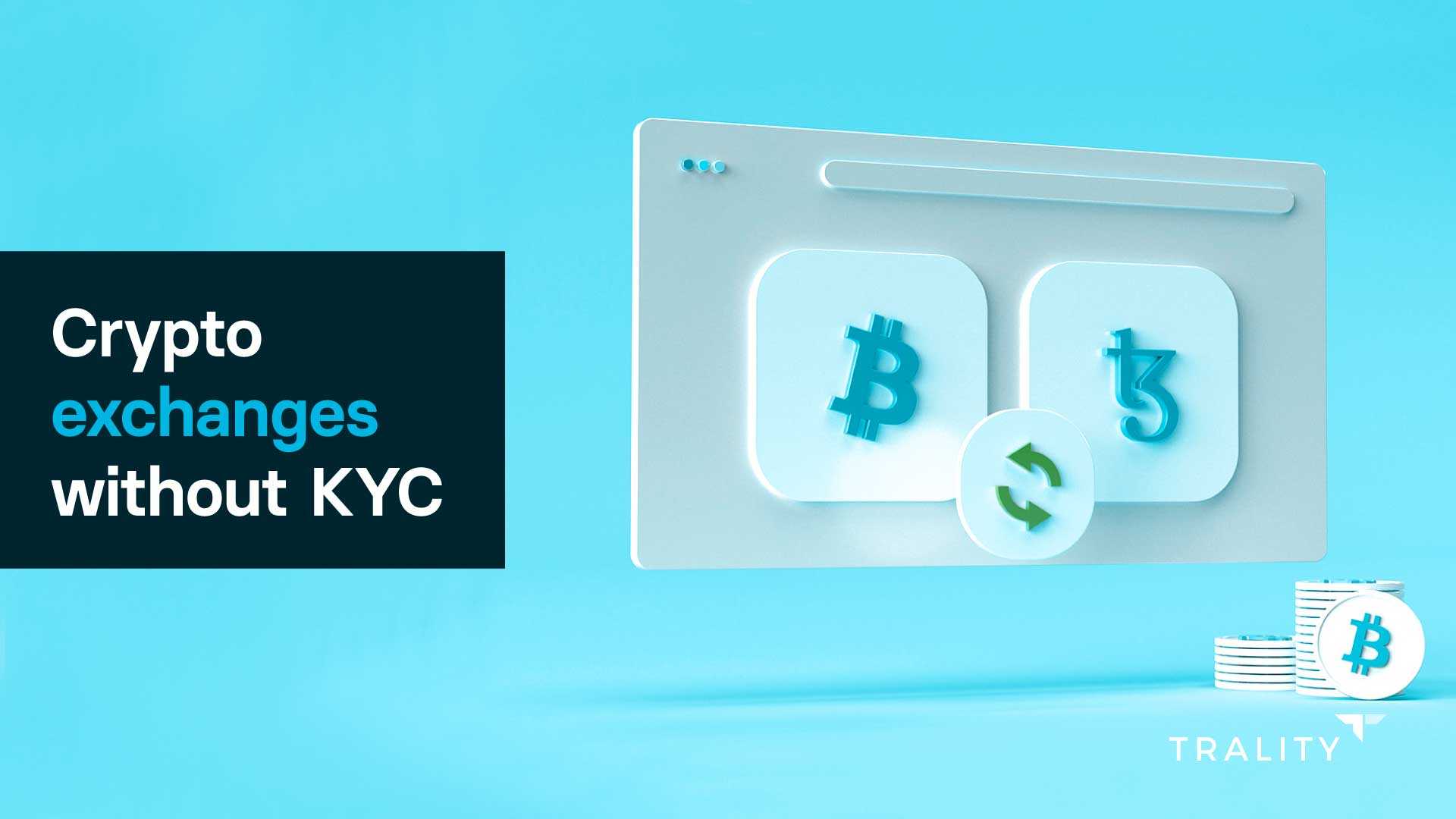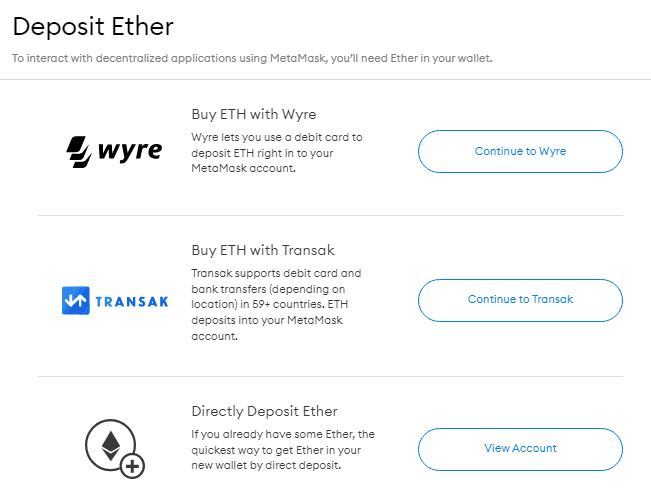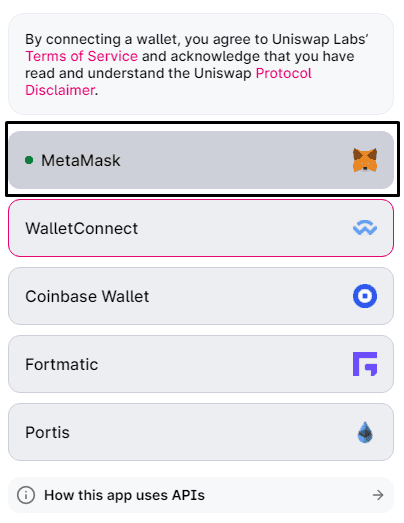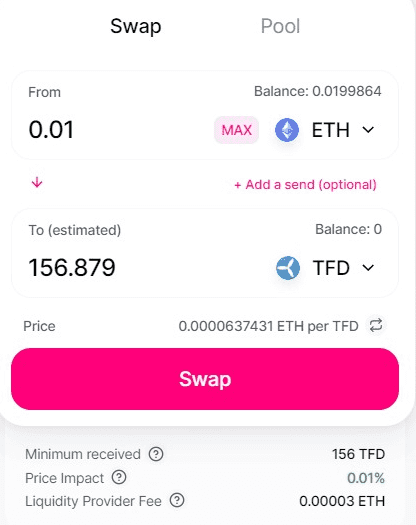Crypto Exchanges without KYC (2022)

MORITZ PUTZHAMMER
08 March 2022 • 10 min read

Table of contents
There once was a time when the crypto market seemed poised to eliminate the cumbersome KYC verification process (remember when Binance only required an e-mail address?). Now, however, KYC within the crypto space has become an inescapable reality for most people. If you've ever set up an account with any of the leading crypto exchanges, you’ve likely been asked to complete the know-your-customer (KYC) process before being allowed to make any transactions.
Sure, there are some very important reasons for complying with KYC, chief among them being the fact that it can be an effective anti-money laundering (AML) measure. As reported by the Bitcoinist, “the adoption of a coordinated international crypto KYC approach could solve the growing ransomware problem as attackers will be easily tracked based on their personal information.” In fact, many see KYC measures as one of the keys to crypto’s longevity. Still others, though, see blockchain as the solution to inefficient KYC processes.
However, what if you have principled objections to KYC? Let’s say that you have absolutely nothing to do with money laundering or financing terrorism, but simply wish to stay anonymous. What sort of options do you have in terms of crypto exchanges without KYC?
In the following guide, we’ll 1) take a brief look at KYC and crypto, 2) review the top crypto exchanges without KYC, 3) briefly touch on some of the best crypto exchanges with KYC, and, finally, 4) outline how you can buy crypto without KYC by using Uniswap.
What is KYC?
“KYC” stands for "know your customer" or "know your client." The simplest explanation of KYC is that it is the process that financial institutions use to verify the identity of their account holders. The KYC process is a regulatory requirement for centralized financial institutions to confirm that the person opening an account is who they claim to be, which, as suggested earlier, is designed to prevent money laundering, the funding of terrorism, and tax evasion. In most cases, the KYC process complements the anti-money laundering (AML) policies established to deter illegally obtained earnings from being disguised as legitimate income.
Notably, decentralization promised to remove the bottlenecks presented by the KYC process and make transactions trustless. So, one might reasonably ask: what does any of this have to do with crypto exchanges? Well, the shorter version is that decentralized finance (DeFi) cannot exist in isolation; it has to operate in tandem with the centralized financial system. We have to start from somewhere, and you cannot overhaul the entire centralized finance apparatus overnight. At a bare minimum, having KYC helps onboard skeptics by offering an extra layer of an all-too-familiar vetting and verification process.
Of course, crypto exchanges with KYC typically handle their respective processes differently, but there’s a certain level of standardization in terms of the information that you'll be required to provide, which includes:
- Proof of ID – name, date of birth, and a copy of your national ID, passport, or driver's license;
- Proof of physical address; and
- Pass a facial recognition test.
Decentralized Finance and KYC
If it all sounds a bit intrusive, then what are your options? After all, you might not want to fall off the grid completely like one Bitcoin evangelist, but you might also not feel comfortable revealing so many personal details about yourself just because you want to trade BTC.
DEXs might be one option to explore. As Cointelegraph explains, “Decentralized exchanges, also known as DEXs, are peer-to-peer marketplaces where cryptocurrency traders make transactions directly without handing over management of their funds to an intermediary or custodian. These transactions are facilitated through the use of self-executing agreements written in code called smart contracts.”
In addition to lower trading fees, DEXs have grown in popularity because they do not require users to submit any form of KYC verification. As a result, users simply create an account with their preferred DEX using their crypto wallet (usually a Web3 wallet like MetaMask)—it's that simple! And unlike centralized exchanges like Binance or Coinbase, DEXs do not hold users’ cryptos in a hot wallet. Instead, you trade and exchange tokens directly from your own crypto wallet, meaning that you have 100% ownership of your crypto. As the saying goes, not your keys, not your crypto.
Typically, DEXs can be either an order book DEX or a swap DEX.
Order book DEXs compile all the buy and sell orders of all cryptos in one platform. Typically, the spread between the buy and sell orders determines the depth of the order book, which also impacts the price of the cryptos on different exchanges.
Swap DEXs, on the other hand, use liquidity pools instead of an order book to maintain the liquidity of their crypto market. Smart contracts are deployed to ensure peer-to-peer trades. The primary advantage of swaps is that they facilitate the cross-chain exchange of non-native tokens without token immigration or the usual crypto-to-fiat exchange, meaning that traders can swap any token in their Web3 wallets for any token available on the DEX.
Best Crypto Exchanges Without KYC
And now for the big reveal for the privacy diehards among us. Here are some of the best crypto exchanges without KYC.
dYdX Exchange
dYdX is the largest decentralized exchange in terms of volume traded. Launched in April 2019, dYdX is a non-custodial orderbook DEX built on Ethereum. It runs on audited smart contracts guaranteeing transparency, liquidity, and security. It partnered with StarkWare to build a Layer 2 protocol for cross-margined Perpetuals, which significantly scales trading using StarkWare's StarkEx scalability engine and dYdX's Perpetual smart contracts. Translation? Users can trade with zero gas costs, lower minimum trade sizes, and reduced trading fees. Typically, traders incur a maker-taker fee ranging from 0 – 0.05%.
Uniswap V3
Uniswap is perhaps the most famous swap DEX. It is a completely decentralized protocol designed at the top of the Ethereum blockchain. Uniswap V1 went live in 2018, but has since evolved into Uniswap V3, which was launched in May 2021. The latest version is adapted into a binary smart contract system comprising the DEX core and its periphery. However, Uniswap stands out among all DEXs because it is not just a trading platform, but also contains an entire DeFi ecosystem with hundreds of DeFi apps and protocols, allowing users to swap, earn, and vote.
PancakeSwap
Like Uniswap, PancakeSwap uses an automated market maker (AMM) model allowing users to trade against a liquidity pool. However, unlike Uniswap, PancakeSwap is only for exchanging BEP-20 tokens, which means that its underlying blockchain is Binance Smart Chain. It also means that trading on PancakeSwap attracts lower fees than other DEXs.
You can also earn tokens with Syrup trading pools by staking the platform's native token “CAKE.” In addition, you can earn CAKE on various yield farms available on the protocol when you stake Liquidity Pool (LP) tokens.
Bisq
BISQ, formerly known as Bitsquare, is a peer-to-peer platform launched in 2014, which at the time of its launch was one of the first Decentralized Autonomous Organizations (DAO). As a peer-to-peer trading network, Bisq is not a website and doesn't offer any centralized service. It is just software that you run on your computer or mobile, allowing you to connect and trade with other users on the BISQ Network. And the fascinating aspect of Bisq is that users can also trade fiat currencies!
The Bisq DAO is built on top of Bitcoin, ensuring decentralized governance for the DEX. However, the only drawback is the high trading fees – 0.7%.
KyberSwap
KyberSwap is a multichain DEX Aggregator and liquidity protocol currently supporting six chains: Ethereum, Polygon, Binance Smart Chain, Avalanche, Fantom, and Cronos. Its primary function is as a DEX aggregator, which means the platform utilizes a proprietary dynamic trade routing algorithm, allowing users to swap tokens from the supported chains effortlessly. Liquidity providers also earn generously on Kyber through swap fees and farm rewards (Rainmaker is KyberSwap's liquidity mining/yield farming program).
And since the Kyber sources liquidity from various DEXs, traders obtain the best possible exchange rates for any token swap. To put this into perspective, KyberSwap has integrated over 46 popular DEXs, including Uniswap, SushiSwap, Curve, Balancer, QuickSwap, PancakeSwap, etc.
SimpleSwap
For those interested in a non-custodial instant exchange, then SimpleSwap is one to consider. First appearing on the crypto scene back in 2018, SimpleSwap offers free sign up and has proven itself over the years to be safe, simple, and trustworthy based on positive reviews and reliable service. In fact, customers don’t have to register to swap cryptocurrency, making it even easier to convert 600+ tokens and coins. And thanks to the intuitive design, the whole exchange process is, well, simple. Users can choose between their website or mobile app (Apple, Google, APK), and 24/7 live chat via their support team is available.
Which Crypto Exchanges Require KYC?
Centralized crypto exchanges (CEXs) require KYC. They often comply with strict “know-your-customer” (KYC) and anti-money laundering (AML) regulations. In other words, if you expect absolute privacy, then such exchanges are not ideal for you.
The irony of a "centralized" crypto exchange is not lost on diehard crypto traders. Centralization here means that these exchanges act as a third party to help conduct transactions, and buyers and sellers do not interact. In most cases, users do not keep their private keys since most CEXs are custodial exchanges.
Here are the top three crypto exchanges that require KYC.
Binance
Binance is the largest crypto exchange globally with an average daily trading volume of about $2 billion and one of the fastest with an average of about 1.4 million transactions per second. As a global trader (the options differ for US-based traders), you can invest in over 500 cryptocurrencies on Binance, including all of the most popular coins, using 1,933 pairs (some of which you won’t find on rival exchanges). Binance is available on the web and also comes in desktop and mobile versions. It also supports deposits and withdrawals in 46 fiat currencies. Binance has comparatively low fees, which is one of the reasons why it is the largest cryptocurrency exchange in the world by daily trading volume. Note that traders are charged a maker-taker fee depending on their 30-day transaction volume ranging from 0.02% to 0.1%.
Binance also has an affiliate called Binance DEX, which is purely decentralized and built on the Binance Smart Chain.
Kraken
Describing it mission as “building the internet of money,” Kraken have had some skin in the crypto game for a long time. In fact, the US-based crypto exchange and bank is one of the oldest Bitcoin exchanges anywhere in the world, having been co-founded back in 2011 by Jesse Powell and Thanh Luu. Interested users can buy and sell 185+ cryptocurrencies with a starting deposit as low as $10 following a quick KYC process and a transparent fee structure.
Kraken offers a wide range of options for traders. Whether you’re in staking and liquidity or indices and futures. It’s also one of the best crypto exchanges for margin trading with leverage. Advanced traders seeking more options and flexibility should explore Kraken’s OTC Desk (over-the counter, while NFT enthusiasts can already sign up for Kraken’s NFT Marketplace waitlist. And if you’re short on ideas or need help with some in particular, Kraken’s learning section provides a great array of crypto guides, videos, and even a podcast.
Coinbase Exchange
Coinbase is one of the largest CEXs and the most regulated crypto exchange globally. It was founded in 2012, making it one of the oldest crypto exchanges in the world. Its core business is trading cryptocurrencies as a crypto exchange, but it also offers ancillary services to its clients, including merchant solutions, Coinbase Wallet, and brokerage services. With its headquarters in San Francisco, California, Coinbase complies with the USA Patriot Act, the Bank Secrecy Act, and money transmission laws. It is also registered with FinCEN as a Money Services Business and regulated under the Electronic Money Regulations by the FCA in the UK.
Coinbase Pro allows users to trade in cryptocurrencies, where they have access to over 159 coins, 474 tradable pairs, and a maker-taker fee structure for all trades. The fee ranges between 0.04% to 0.5% for takers, while the maker’s fee is between 0% and 0.5%. A downside for some traders is the fact that Coinbase doesn't have a futures trading platform.
Buying Crypto without KYC
Buying crypto without KYC is as simple as connecting your wallet to a decentralized exchange and swapping for the crypto you intend to buy. Here's a step-by-step guide on how to buy crypto without KYC on Uniswap, one of the most popular DEXs.
Step 1: Download and Fund your MetaMask Wallet
The first step is to create and fund your MetaMask wallet. All you need to do is download MetaMask and set up your wallet, which can be done quickly and easily in only a matter of minutes. Since MetaMask is a Web3 wallet, there's no KYC involved when creating your wallet. And you can fund it directly from your debit or credit card, or directly via bank transfers by using Wyre or Transak.

Step 2: Connect your Crypto Wallet to the DEX
Different DEXs support different crypto wallets. Currently, Uniswap supports 5 wallets: MetaMask, Coinbase Wallet, Portis, WalletConnect, and Fortmatic.

Step 3: Buy Crypto without KYC
Once you've logged into Uniswap, you can proceed to swap the ETH in your MetaMask wallet to any crypto you prefer. Within the “Swap” interface, enter the amount of ETH you'd like to swap, then click the "Select a token" button and search for the crypto you'd like to buy. After you've selected the crypto that you'd like to buy, Uniswap will fetch the best possible price for you and show you the "Minimum received," "Price Impact," and "Liquidity Provider Fee."

Once the transaction is complete, your crypto will be reflected in your updated MetaMask balance.
It really is that easy!
Conclusion
If you've ever opened a bank account, chances are that you’ve had to jump through any number of bureaucratic hoops pertaining to a lengthy KYC compliance process before your account was approved. The same process is enforced by most crypto exchanges, specifically centralized exchanges. However, some CEXs allow users to trade crypto without KYC verification, but unverified accounts are subject to transaction limits. You can only remove these limits by completing the KYC verification.
But, if you're interested in buying crypto without KYC, decentralized crypto exchanges are your best option. We've reviewed some of the top DEXs in this guide, along with a step-by-step procedure for buying cryptocurrencies without KYC. For a full list of DEXs, check out CoinMarketCap’s useful list.
Whichever side of the debate you find yourself, always remember the golden rule of investing: never risk more that you are willing to lose!





